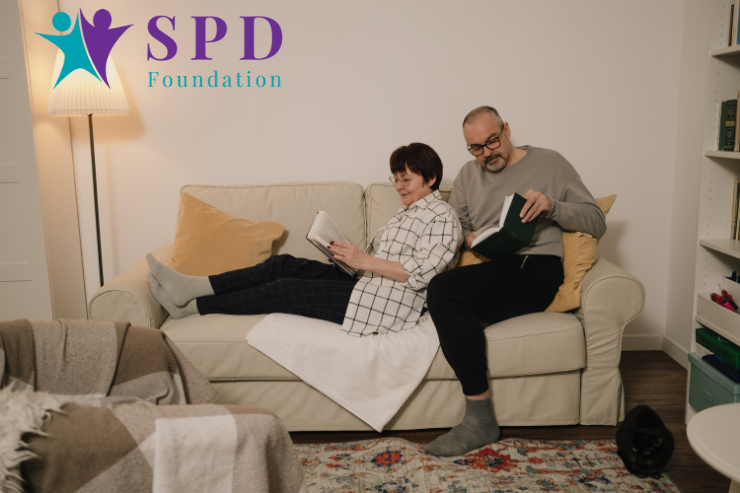Adolescents and adults who received and benefited from therapy in childhood may nonetheless find themselves struggling when they reach new developmental levels and or life experiences. For example, a teenager who has adapted to the challenges of high school may leave home for college and find that living in the more chaotic setting of a dormitory triggers new -`symptoms. At times like these, “booster” therapy or counseling that increases self-understanding and provides strategies for adapting to the new situation is often extremely helpful.
Sensational children who are not treated in childhood often grow into adults whose daily lives continue to be affected by their inability to accurately and appropriately interpret sensory messages. These “sensational adults” may have difficulty performing routines and activities involved in work, close relationships, and recreation. Because adults with SPD have struggled for most of their lives, they may also experience depression, underachievement, social isolation, or other secondary emotional or social effects.
The goal of treatment for adults with SPD is to help them live fulfilled and happy lives. Most adults with SPD struggle because they’ve been misunderstood all their lives. Often, they don’t even understand themselves. Why don’t I like to be with people, go shopping, or go to the movies? Or Why am I so clumsy? Or Why is it so hard for me to stick with things?
Once adults receive treatment for their sensory issues, understanding grows. With direct treatment such as occupational therapy or listening therapy, changes in how sensation is perceived occur. Strategies can be identified during treatment for avoiding those relationships and situations that cause failure and lead to anxiety and depression. Sensory techniques for the home can be taught
Adolescents and Adults Facing New Challenges:
1. Transitioning to New Developmental Stages:
- Adolescents who have coped with the demands of high school may encounter new difficulties when transitioning to college life.
- The shift to a more chaotic environment like a dormitory can trigger heightened symptoms of SPD.
2. Need for Booster Therapy:
- Booster therapy or counseling becomes essential during such transitions to enhance self-understanding and equip individuals with strategies to navigate novel situations effectively.
- This therapy focuses on adapting to the evolving circumstances and managing symptoms in new environments.
Challenges Faced by Sensational Adults:
1. Continued Impact of Untreated Sensory Issues:
- Adults who haven’t received treatment for SPD in childhood may continue to struggle with interpreting sensory messages accurately.
- Daily routines, work, relationships, and recreational activities can be significantly affected by sensory difficulties.
2. Secondary Emotional and Social Effects:
- Long-term struggles with SPD can lead to depression, underachievement, social isolation, and other emotional or social challenges.
- Misunderstanding from others and lack of self-awareness contribute to these secondary effects, exacerbating the difficulties faced by sensational adults.
Goals of Treatment for Adults with SPD:
1. Promoting Fulfillment and Happiness:
- The primary objective of therapy for adults with SPD is to help them lead fulfilling lives by addressing their sensory challenges.
- Treatment aims to enhance understanding and provide effective coping strategies, fostering self-acceptance and improved daily functioning.
2. Enhancing Self-Understanding:
- Through therapy, adults with SPD gain insights into their sensory experiences and understand why certain activities or situations are challenging for them.
- This self-awareness is crucial for developing effective coping mechanisms and making informed lifestyle choices.
3. Implementing Sensory Techniques:
- Occupational therapy and listening therapy are common approaches used to address sensory issues in adults.
- These therapies facilitate changes in how sensory stimuli are perceived and processed, empowering individuals to manage their sensory challenges more effectively.
Accessing Resources:
1. Library Resources:
- Articles and books focused on SPD in adults provide valuable insights and practical guidance for individuals seeking information and support.
2. Online Support:
- Platforms like Rachel S. Schneider’s video series offer firsthand perspectives and address common questions and concerns of adults with SPD and their families, fostering a sense of community and understanding.







